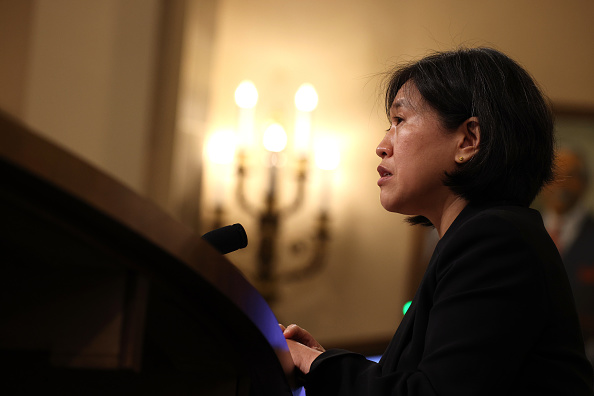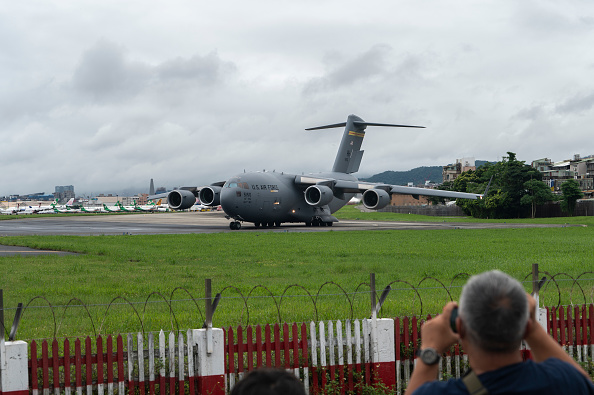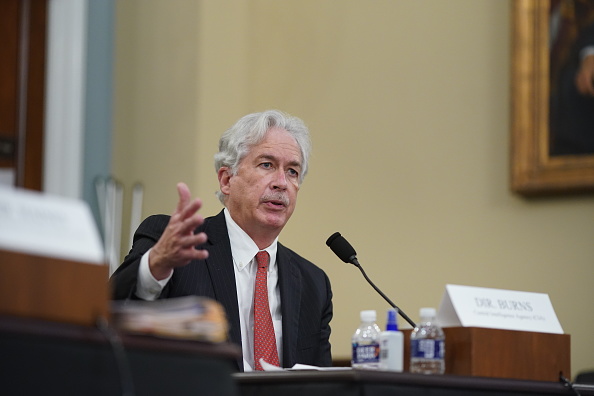
 Stoking Tensions
Stoking TensionsThe Biden administration has broken its silence on its U.S.-China economic policy and indicated that it will become more forceful with Beijing on trade. President Biden will not lift tariffs on Chinese goods and will continue to ensure that China lives up to its commitments, including the trade restrictions enacted by former President Trump in 2020.
U.S. Trade Representative Katherine Tai outlined the economic and political strategy, which is designed to counter China within a more combative bilateral relationship. Despite President Biden's sharp criticism of the Trump administration's policies, the Biden administration is taking similar steps to deal with economic and security threats from China, including Beijing's support for state-owned firms and other barriers that undercut foreign rivals and distort markets.
Tai's remarks followed Chinese Foreign Ministry spokesperson Hua Chunying's statement last week that said "the China-US economic and trade relations are in essence mutually beneficial and win-win, and both sides stand to lose in a trade war." Hua also added that China hopes the U.S. will respect market economy principles and international trade rules, and work with Beijing to develop China-U.S. trade and economic relations in a healthy way.
Critics have asserted that Tai's subsequent answers were vague and lacking in specifics. When asked if the Biden administration was interested in revisiting U.S. participation in the CPTPP – which China just applied to join last month – Tai refrained from giving a direct yes or no.
The United States and China have agreed to a virtual meeting between President Joe Biden and President Xi Jinping before the end of the year, which could chart a path towards more stability in the increasingly fraught relationship between the two world superpowers. The issue of Taiwan is likely to be addressed, as are other areas of cooperation and disagreement. Read more with, "Revolving-Door Politics Behind the Fall of U.S.-China Ties," by Dan Steinbock, Founder of the Difference Group.
 Troops, Trials, & Taiwan
Troops, Trials, & TaiwanChina has called on the United States to withdraw troops from Taiwan, after reports that about two dozen U.S. Marines have been deployed to the island for more than a year. The military trainers were first sent to Taiwan by the Trump administration but their presence had not been reported until now. The report came as Leader Tsai Ing-wen said that Taiwan will "do whatever it takes to defend its freedom and democratic way of life".
Chinese Foreign Ministry spokesman Zhao Lijian said that the U.S. must end its formal security pact and uphold the policies that led Washington to sever ties with Taipei more than four decades ago.
In the meantime, China has flown a mix of nearly 150 Air Force fighter jets, nuclear-capable bombers, anti-submarine aircraft and airborne early warning and control planes near Taiwan, prompting protest from Taipei.
Taiwan's defence minister has said that military tensions with China are at their worst in more than 40 years, and sent a new arms spending package to lawmakers days after the Chinese aircraft flew into the island's air defence zone. Read more with, "Taiwan Is Not Afghanistan," by Ted Carpenter, a Senior Fellow at the CATO Institute.
 Multipronged Threat
Multipronged ThreatThe CIA announced a restructuring within the organization on Thursday that includes the establishment of a new group focused solely on China, which will expand intelligence gathered against what Washington views as a "multipronged threat" from Beijing.
The agency's goal for the new China Mission Center is to better position officers across the globe to analyze China's actions and actively collect information, serving as part of an agency-wide pivot towards China. Case officers at the center will recruit spies, intelligence analysts, technology experts and other specialists for an individual unit, and will recruit and train more Mandarin speakers in efforts to deploy an increased number of China specialists around the world.
CIA Director William Burns said the new organization "will further strengthen our collective work on the most important geopolitical threat we face in the 21st Century, an increasingly adversarial Chinese government," echoing his Senate confirmation hearings months ago where he identified China as his top priority.
The structural changes also include a new Transnational and Technology Mission Center, along with a chief technology officer position, that will focus on emerging threats like disruptive technology, global health, and climate change. Officials have noted that the two new mission centers are complementary as technology is one of the U.S.'s main areas of competition with China. Global health and climate change are also two spaces where Washington and Beijing have discussed collaboration.
Prepared by China-US Focus editorial teams in Hong Kong and New York, this weekly newsletter offers you snap shots of latest trends and developments emerging from China every week, while adding a dose of historical perspective.
- 2021-10-01 Great Power Coopetition
- 2021-09-24 Sign of Goodwill?
- 2021-09-17 State of Play
- 2021-09-10 The Last Word
- 2021-09-03 Heightened Frustrations
- 2021-08-27 China’s Backyard
- 2021-08-20 Graveyard of Empires
- 2021-08-13 A New Crossroads
- 2021-08-06 Lowering Barriers
- 2021-07-30 A Diplomatic Stalemate
- 2021-07-23 A Climate for Change
- 2021-07-16 The Trade Game
- 2021-07-09 Existential Threats
- 2021-07-01 Centenary Celebrations
- 2021-06-25 Critical Crossroads
- 2021-06-18 Part of the Club
- 2021-06-11 Retaliatory Legislation
- 2021-06-04 "Defanging" Diplomacy
- 2021-05-28 The End of an Era?
- 2021-05-21 One Step Forward, One Step Back